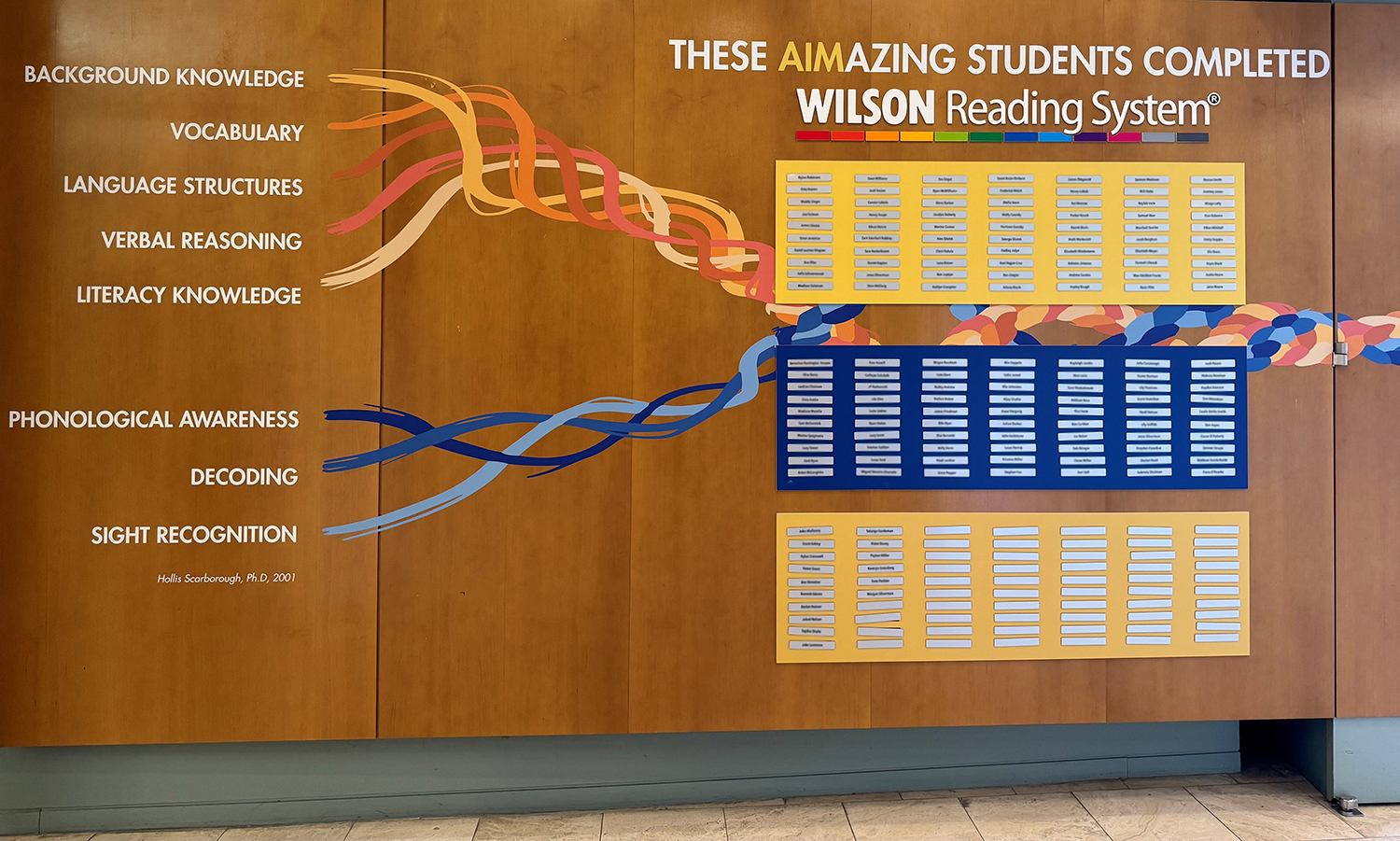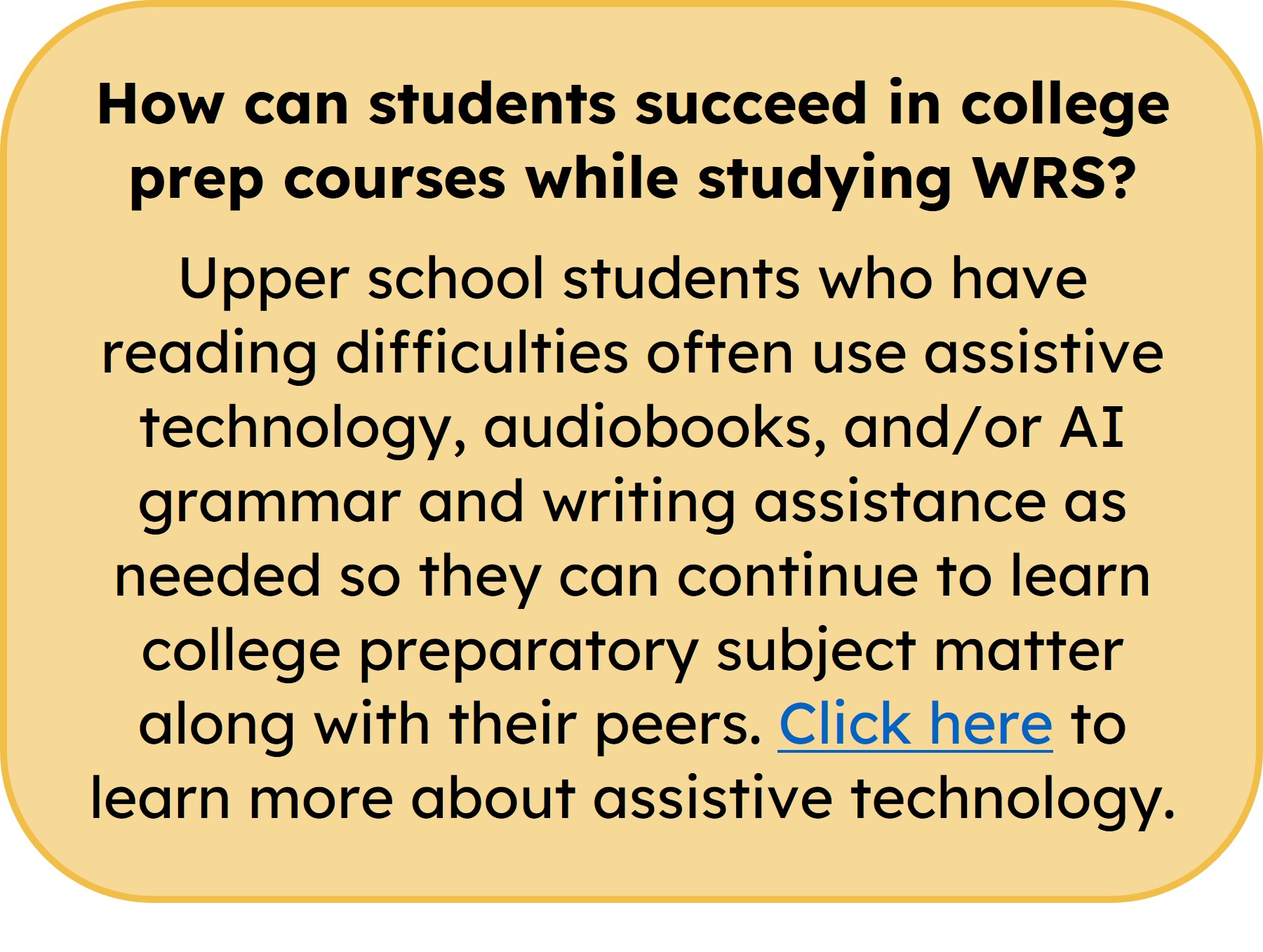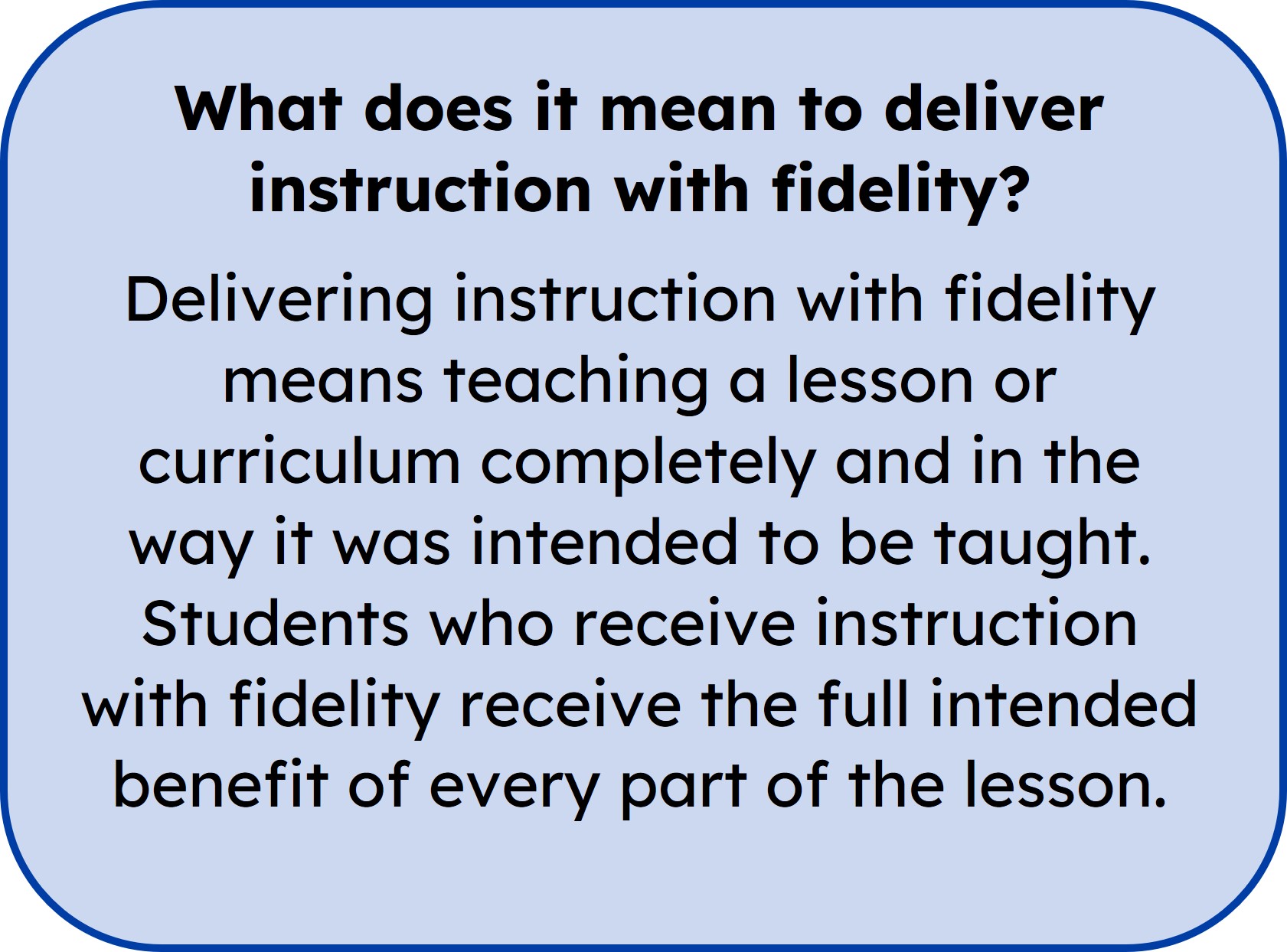
Eighteen years ago, AIM Academy opened its doors in suburban Philadelphia, PA, with a focus on giving bright students with learning differences access to future opportunities through rigorous academic curricula and learning supports not always readily available in public schools.
Since then, enrollment has grown from 16 to 405 students. About 80% of students have received evidence-based Structured Literacy instruction through Wilson Reading System® (WRS). The program is built into the school day for lower school (Grades 1–5) and middle school (Grades 6–8) students and delivered based on individual needs in the upper school (Grades 9–12). The school aims to close learning gaps for students who have never or inconsistently received Structured Literacy instruction.

Head of Upper School, Andrew DiPrinzio, is a veteran teacher of 14 years who completed his WRS Level I Certification while teaching literature and writing. After earning his certification, he began teaching WRS in addition to college preparatory classes.
Andrew and his fellow dedicated teachers have witnessed many literacy success stories through the years of AIM Academy.
Grey is one these. He enrolled at AIM in the eighth grade. Despite being highly intelligent and capable of academic success, he didn’t feel that college was for him because his standardized reading scores were in the tenth percentile.
“He believed in himself to a degree and knew he had something special inside of him, but reading was really difficult,” Andrew said.

In ninth grade, Grey became Andrew’s student in English language arts class and for WRS lessons.
Grey worked hard during his WRS lessons. With daily instruction, he gained vital decoding, encoding, and reading comprehension skills. That year, Grey finished Step 9 and began to read with noticeably greater speed and fluency.
Grey reached oral fluency at the eighth-grade level in his sophomore year. Moreover, he was able to enroll in the honors-level English language arts, computer science, and history classes.
Learning to read and write reveals a host of opportunities for students like Grey. Initially, he had considered joining the military to gain career skills. However, as he became a confident reader, he changed his mind and applied to colleges.
“Once many students reach the upper school, their motivation to learn comes from wanting to go to college,” Andrew explained.
Grey finished WRS and succeeded in the school’s academically rigorous classes. He also added his name to the Wilson wall of honor at his school.
“We have this wall that has the names of all the kids who have finished the whole Wilson program,” Andrew explained. “When kids complete it, they have graduation ceremonies with certificates and pizza, and they put their names on the wall.”
Grey’s senior year capstone project was a twelve-page research paper on the history of France and England—something he never would have dreamed of completing in the past.
Grey is now a first-generation college student majoring in computer science.

An important aspect of delivering high quality, evidence-based Structured Literacy instruction is teaching with fidelity. When educators select a research-based and evidence-based program, the delivery of that program with fidelity ensures that learners are taught effectively and in a way that supports their success. Authentic professional learning assists educators in this endeavor, providing them with the knowledge and skills they need.
AIM Academy reaches educators in the region through its professional learning center, AIM Institute. A Wilson® Accredited Training Partner, AIM Institute offers educators various professional learning opportunities including WRS Introductory Courses as well as Fundations® and Just Words® Virtual Launch Workshops. AIM Institute also offers pathways for WRS Levels I and II and Just Words Facilitator Certification.